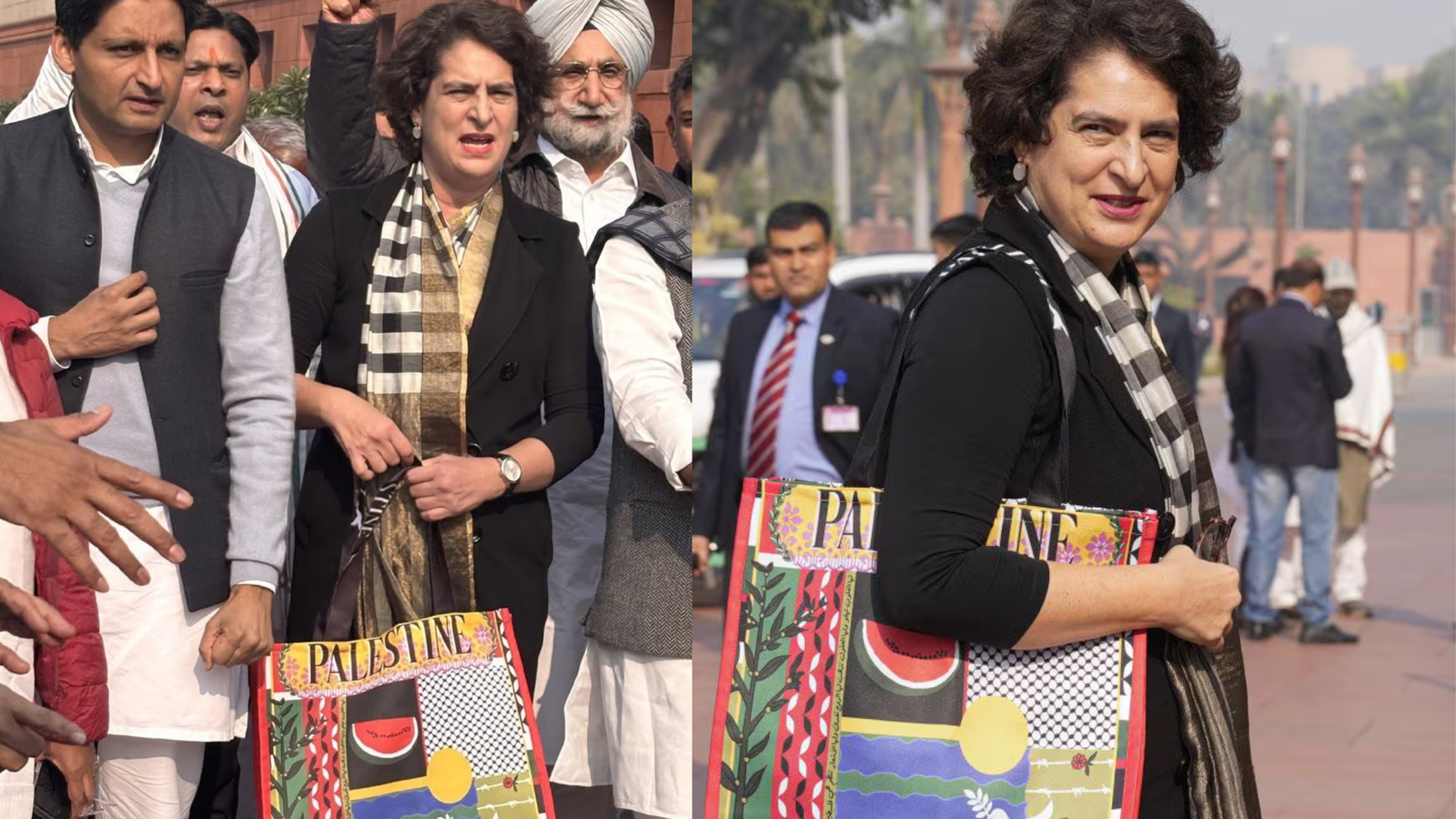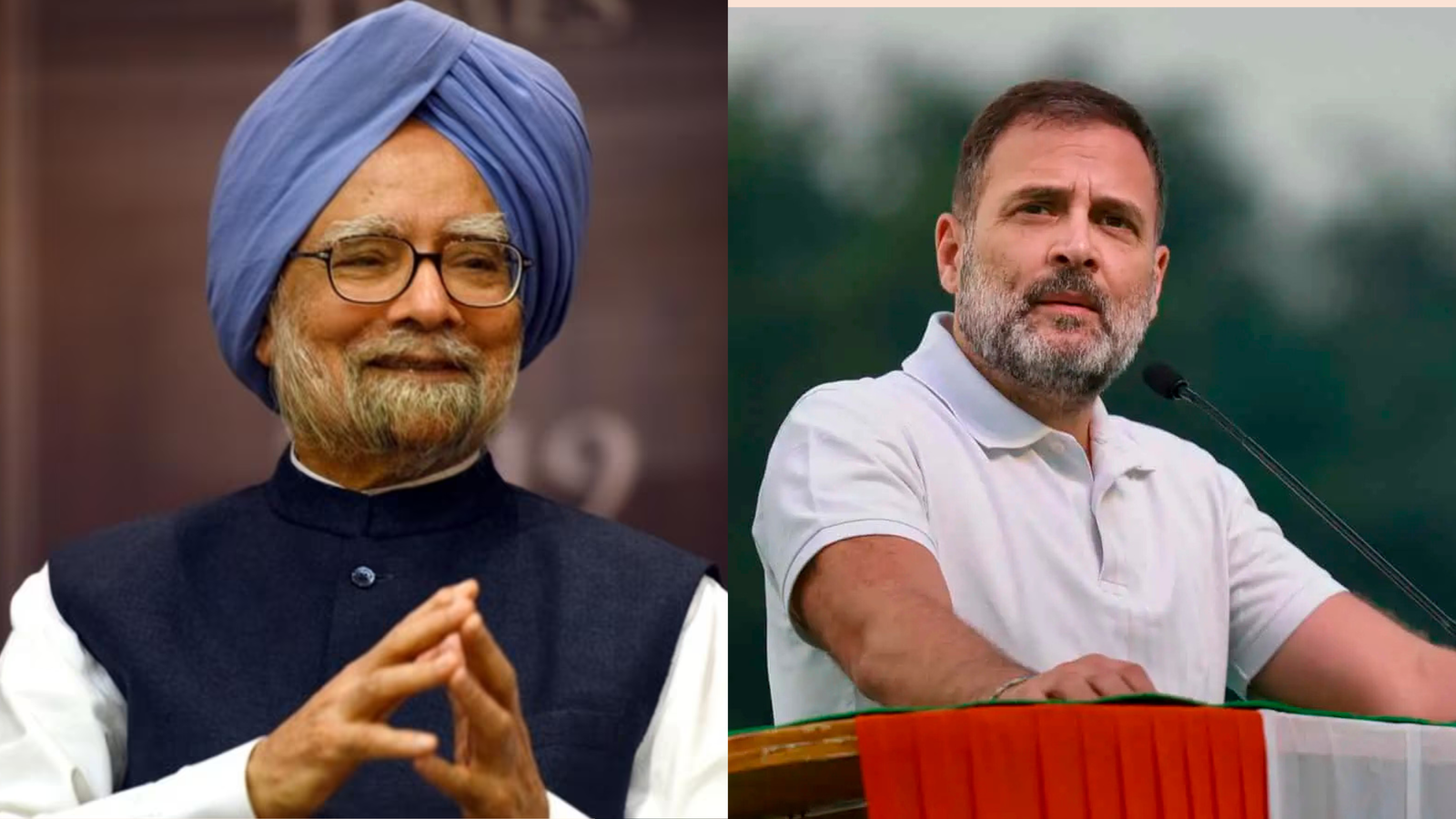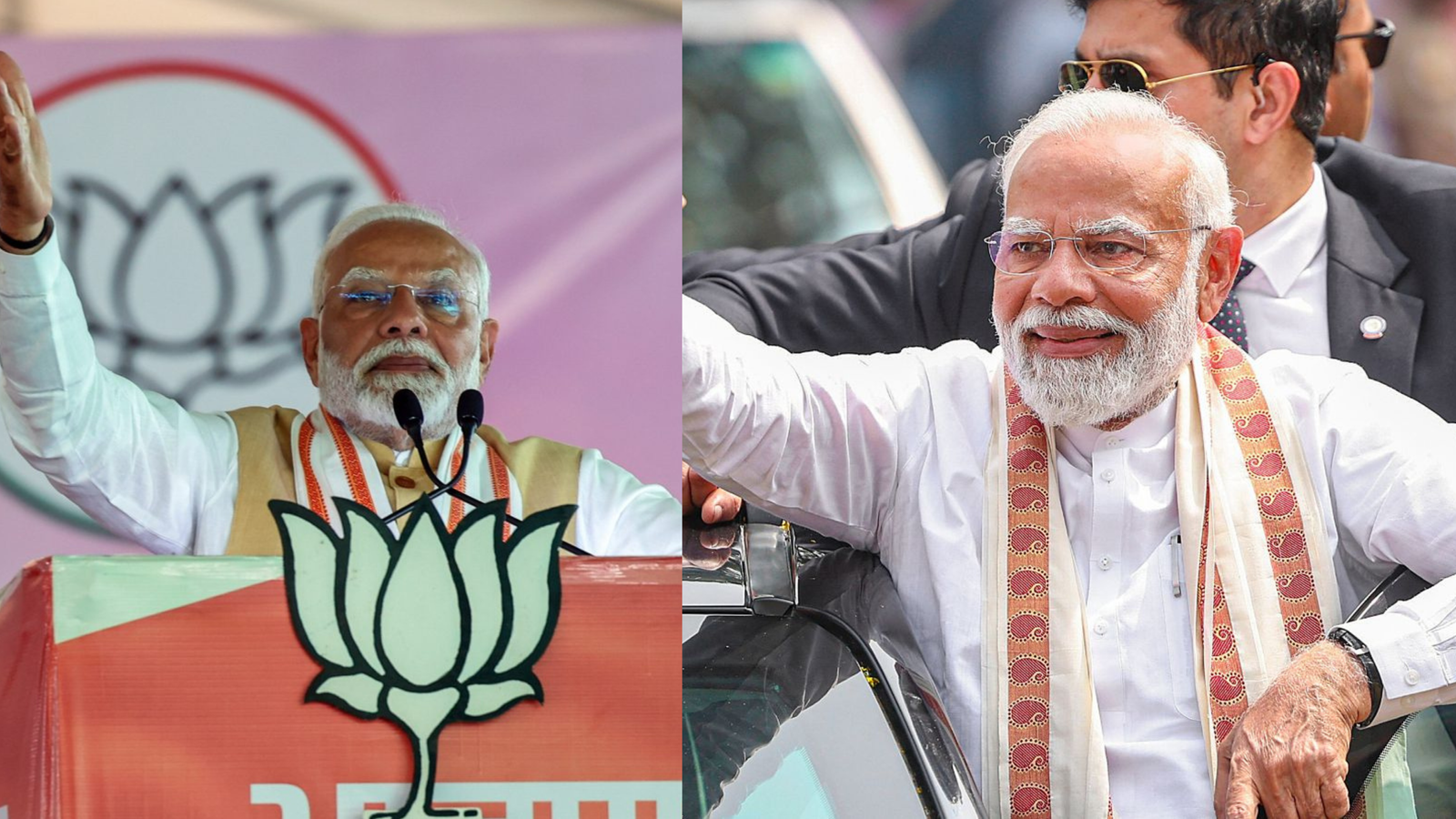Congress leader Priyanka Gandhi triggered a political storm today after carrying a handbag displaying the word “Palestine” to Parliament. The symbolic gesture drew fierce criticism from BJP leaders, who accused her of indulging in “communal posturing” and avoiding critical domestic issues.
Priyanka Gandhi’s Advocacy for Gaza
Priyanka Gandhi has been a prominent voice advocating for Palestinians during the ongoing humanitarian crisis in Gaza. In July 2024, she described Israel’s military actions as “barbaric and inhuman” and called them a violation of international law. Her stance intensified when she recently hosted Palestine embassy representative Abed Elrazeg Abu Jazer at her residence. The diplomat, congratulating her on her Lok Sabha victory from Wayanad, urged India to mediate for peace and help facilitate a ceasefire in the Israel-Gaza conflict.
The controversy surrounding her handbag comes as part of her continued advocacy for Gaza civilians. However, this action did not sit well with BJP leaders, who accused her of using the issue for political mileage.
BJP Leaders Lash Out
BJP MP Anurag Thakur questioned Priyanka Gandhi’s priorities, accusing her of sidelining pressing domestic issues. “Was the bag a statement? Why is she silent about the atrocities on Bangladeshi Hindus? Parliament is for addressing the concerns of 140 crore Indians, not for making international political statements,” he said.
Amit Malviya, BJP IT cell head, took to X (formerly Twitter), branding Priyanka Gandhi’s actions as “crass communal posturing.” He went a step further by stating, “Priyanka Vadra is a bigger disaster than Rahul Gandhi. Carrying a Palestine bag to Parliament is nothing but virtue signaling.” Malviya further alleged that the Congress party, under Priyanka Gandhi’s leadership, is morphing into the “New Muslim League.”
BJP MP Gulam Ali Khatana dismissed her gesture as a publicity stunt, stating, “People do such things for attention when they are rejected by voters.”
Priyanka Gandhi Responds to Critics
Unfazed by the criticism, Priyanka Gandhi hit back at her detractors. In a sharp rebuttal, she urged BJP leaders to focus on addressing the atrocities faced by Hindus in Bangladesh instead of making “stupid” comments about her actions.
In a tweet earlier this year, Priyanka Gandhi emphasized the need for global solidarity in addressing the humanitarian crisis in Gaza. “It is no longer enough to speak up for the innocent civilians being wiped out day after day by the horrific genocide in Gaza,” she said, reiterating her demand for an immediate ceasefire.
India’s Stance on Israel-Palestine
India has historically maintained a balanced approach to the Israel-Palestine conflict, supporting a two-state solution that envisions an independent Palestinian state coexisting peacefully with Israel. Last week, External Affairs Minister S. Jaishankar reaffirmed this position in Parliament. He clarified that India had supported 10 of 13 United Nations resolutions concerning Palestine since the Israel-Hamas conflict erupted in October 2023.
India has also provided substantial humanitarian aid to Palestine, including 70 metric tonnes of relief materials such as medicines and medical equipment. Additionally, the Indian government contributed $5 million to the United Nations Relief and Works Agency (UNRWA) to support Palestinian refugees.
While India condemned the October 2023 Hamas attack on Israel, which claimed over 1,000 lives and involved the kidnapping of Israeli civilians, it has consistently called for restraint and the protection of civilian lives in Gaza, where the death toll has now exceeded 40,000.
India-Palestine Relations: A Historical Bond
India’s support for Palestine spans nearly five decades. In 1974, it became the first non-Arab nation to recognize the Palestine Liberation Organisation (PLO). In 1996, India established a representative office in Gaza, which was later shifted to Ramallah in the West Bank in 2003. This enduring relationship underscores India’s commitment to supporting Palestine while maintaining diplomatic ties with Israel.
Political Implications of the Handbag Controversy
The debate over Priyanka Gandhi’s symbolic gesture reflects the complex interplay between domestic politics and foreign policy. While her handbag might have been a statement of solidarity with Gaza civilians, it has sparked a larger discussion on how Indian leaders navigate sensitive international issues within the domestic political arena.
This controversy comes amid a growing divide between the ruling BJP and the opposition Congress on matters of foreign policy, national priorities, and communal harmony. Priyanka Gandhi’s “Palestine” bag has become the latest flashpoint, highlighting the deeply polarized nature of Indian politics today.




